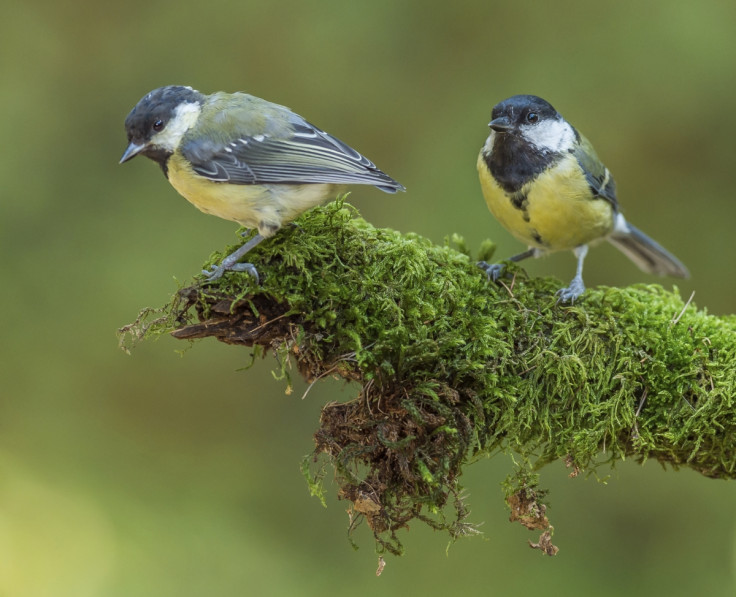Birds of a feather starve together: Great tits will give up food for love

Much like a newly established couple in the honeymoon period, wild birds will sacrifice food for the sake of staying close to their mates during the winter months, a study has revealed. Research from Oxford University's Department of Zoology drew scientists to the conclusion that mated pairs of great tits placed their relationships above food in the pecking order.
To learn this, the scientists electronically tagged mated pairs of birds and used automated feeding stations that used radio frequency identification to identify individual birds that it would and would not give food to, via the electronic tags. Males were allowed food from a certain feeding station which females could not access and vice versa.
They found the one set of birds would spend a significant amount of time at the feeding station they were not allowed access to in order to be with their beloved, according to the study published in Current Biology. The team says this experiment highlights the importance of social relationships for wild birds.
Josh Firth, who led the research, said: "The choice to stay close to their partner over accessing food demonstrates how an individual bird's decisions in the short term, which might appear sub-optimal, can actually be shaped around gaining the long-term benefits of maintaining their key relationships.
"For instance, great tits require a partner to be able to reproduce and raise their chicks. Therefore, even in wild animals, an individual's behaviour can be governed by aiming to accommodate the needs of those they are socially attached to.
"Because these birds choose to stay with their partners, they also end up associating with their partners' flock-mates, even if they wouldn't usually associate with these individuals. This shows how the company an individual bird keeps may depend on their partner's preferences as well as their own.
"Also, when birds were going to feeding stations they couldn't access because their mate was there, they learned over time to 'scrounge' from those feeders by taking advantage of the fact the feeders remained unlocked for two seconds after recognising a bird's identification tag. Interestingly, a relatively large amount of this scrounging was enabled by the bird's own partner unlocking the feeding station, suggesting it may be a cooperative strategy."
© Copyright IBTimes 2025. All rights reserved.






















